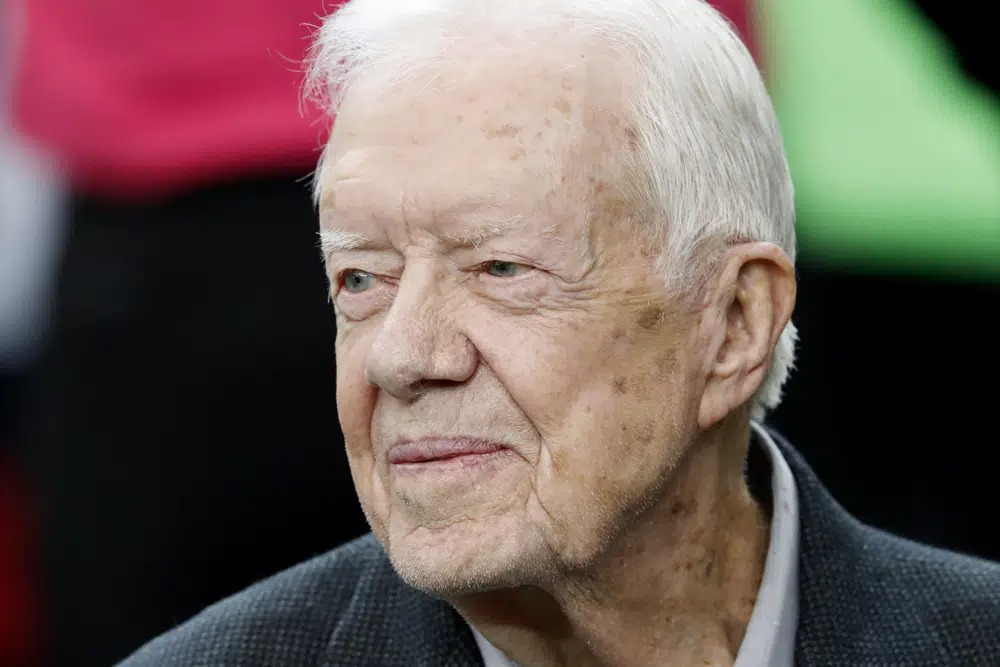Former U.S. President Jimmy Carter entered home hospice care in Plains, Georgia, after a series of short hospital stays.
The Carter Center said in a statement Saturday that Carter, 98, “decided to spend his remaining time at home with his family and receive hospice care instead of additional medical intervention.”
WHAT IS HOSPICE CARE?
Hospice care is treatment designed to make patients comfortable and to reduce pain and suffering in their final days. It is usually home-based, but can also be provided in nursing homes, hospitals and hospice centers. It is reserved for those declared by two physicians to be terminally ill, with six months or less to live.
The average time spent in hospice is about three weeks, said Dr. Arif Kamal, chief patient officer at the American Cancer Society.
HOW ARE HOSPICE PATIENTS CARED FOR?
Care may include medicine, but only to reduce symptoms, not with the intent to cure any illness.
Patients are typically cared for by family members, with supervision from hospice doctors, nurses and social workers. Much of the focus is on making sure family caretakers feels supported, Kamal said.
The team “addresses everything from physical symptoms to emotional distress, helping think through logistics related to burials, wills and advanced care planning,” he said.
WHO IS ELIGIBLE FOR HOSPICE CARE?
Under Medicare rules, patients may enroll in hospice if they meet certain criteria depending on their illness. For example, cancer patients must be unable to perform at least two usual activities of daily living without help, such as eating or dressing, with other challenges that may include evidence that the disease has spread widely and their health is declining despite treatment.
It is unclear what led to Carter’s decision to enter hospice care, but within the past several years he has been treated for metastatic skin cancer and for injuries from falls.
Modeled after U.K. programs, the hospice movement got its start in the United States in the late 1970s during Carter’s presidency.
(AP)












2 Responses
Okay so I kind of feel like “good riddance”.
But, gotta remember, Carter brokered Israel’s peace with Egypt.
Which then later led to peace with Jordan too.
So, yea I know that both agreements aren’t that great. But a cold peace is still better than war.
Therefore while holding my nose, gotta give him the credit where due.
No, LIY, that is a big fat lie. The alternative to those agreements wasn’t war! There was no war before the agreements, and without them there would still be no war. The “cold peace” with Egypt and Jordan has been no better than the “cold war” with Syria; so what did Israel gain that could possibly justify all that it gave away to achieve them? As Sadat y”sh said, “Poor Menachem, I got the Sinai and all he got is a piece of paper”.